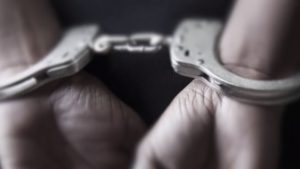PRETORIA, Republic of South Africa. South Africa’s parliament has voted down a no-confidence motion in President Jacob Zuma, while a court is hearing a case to reinstate 738 corruption charges against him.
Governing party MPs defeated the motion by a big margin, while Mr Zuma’s office said he would oppose the court case.
The opposition was behind both actions, accusing him of taking a bribe.
Mr Zuma has denied the allegation, linked to a multi-billion dollar arms deal negotiated over a decade ago.
He was first charged in 2005, and fired as deputy president by then-President Thabo Mbeki.
After much legal and political wrangling, the National Prosecuting Authority (NPA) dropped the case in April 2009, and Mr Zuma went on to become president a month later.
During a noisy parliamentary session, DA leader Mmusi Maimane described Mr Zuma as a sell-out whose main aim was self-enrichment.
South Africa was “spiralling downward, and doing so at an alarmingly fast rate” under his presidency, the party added in a statement.
‘Spy tapes’
The governing African National Congress (ANC) party said that despite the “frivolous antics” of the DA, its confidence in Mr Zuma remained unshaken.
The motion was defeated by 225 votes to 99, with 22 abstentions.
In the High Court, the DA’s lawyers said the decision of the NPA to drop the corruption charges was unconstitutional and irrational.
Mr Zuma’s office said, in a statement, that the court action was an “abuse of process by a political party in order to advance a political agenda”.
The president was confident that the NPA’s decision would “withstand any scrutiny”, the statement added.
At the time, the NPA said phone-tap evidence, dubbed in the local media as “spy tapes”, suggested political interference in the investigation, and it was “unconscionable” to press ahead with the case.
Chicken run
The DA brought the case after it won a lengthy battle in 2014 to obtain the “spy tapes”.
Mr Zuma, a former ANC intelligence chief, has been dogged by controversy throughout his time in government.
Last month, he conceded in court that he needed to pay the government for money used to upgrade his private home, which included the building of a swimming pool, amphitheatre, chicken run and cattle enclosure.
That case was brought by the DA and left-wing Economic Freedom Fighters (EFF) party after Mr Zuma failed to pay the money, despite a ruling against him by an independent anti-corruption body in 2014.
In December, South Africa’s currency went into a tail spin after having three finance ministers in a week.
In 2005, Mr Zuma’s former financial adviser Schabir Shaik was convicted of corruption.
Credit: BBC




